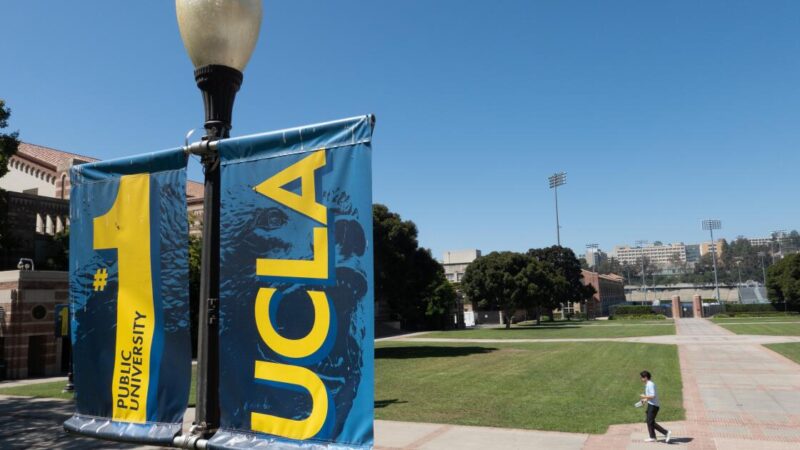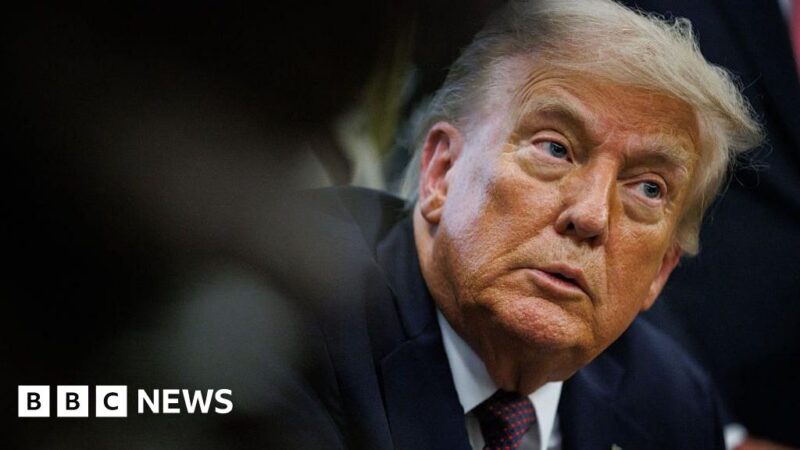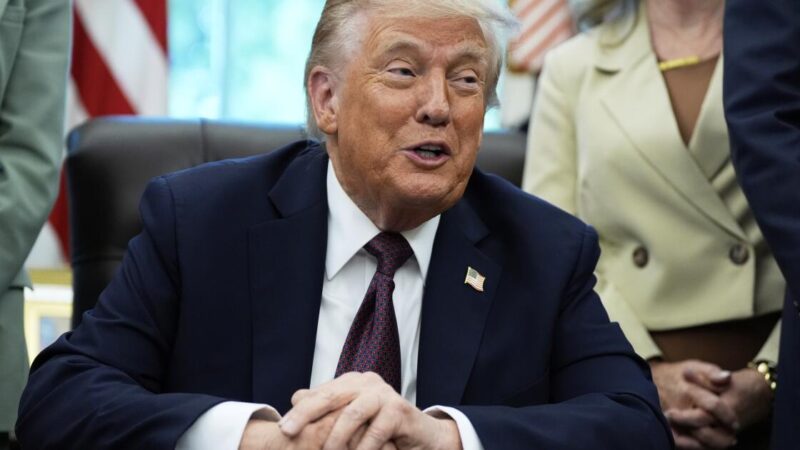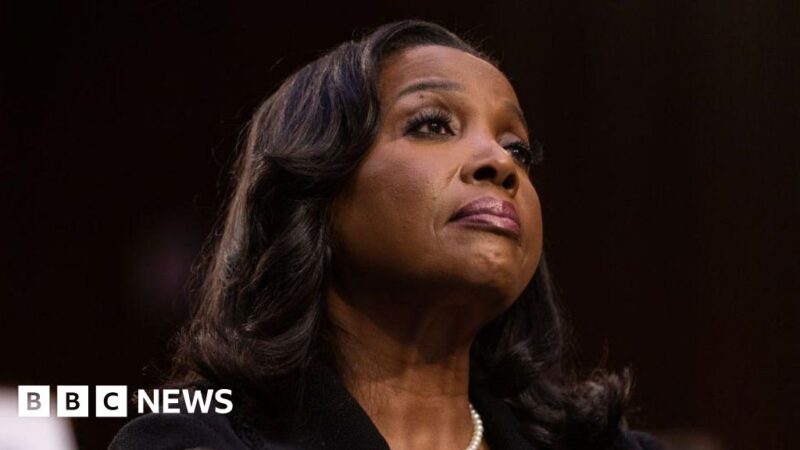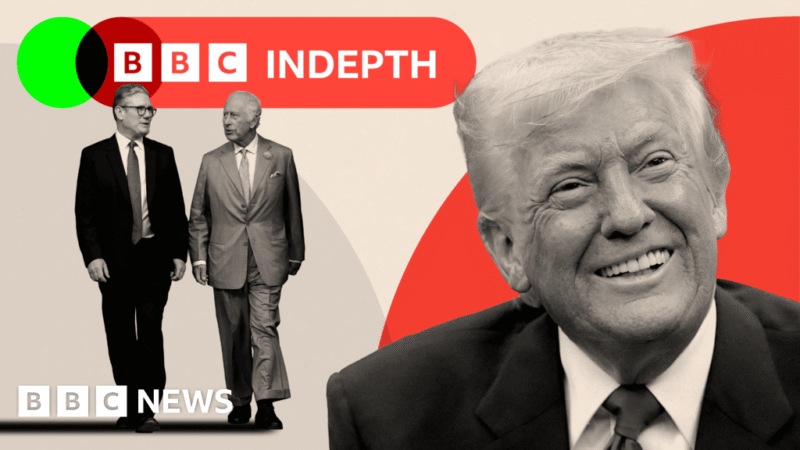Judge strikes down Trump guidance against diversity programs at schools and colleges
WASHINGTON — A federal judge on Thursday struck down two Trump administration actions aimed at eliminating diversity, equity and inclusion programs at the nation’s schools and universities.
In her ruling, U.S. District Judge Stephanie Gallagher in Maryland found that the Education Department violated the law when it threatened to cut federal funding from educational institutions that continued with DEI initiatives.
The guidance has been on hold since April when three federal judges blocked various portions of the Education Department’s anti-DEI measures.
The ruling Thursday followed a motion for summary judgment from the American Federation of Teachers and the American Sociological Association, which challenged the government’s actions in a February lawsuit.
The case centers on two Education Department memos ordering schools and universities to end all “race-based decision-making” or face penalties up to a total loss of federal funding. It’s part of a campaign to end practices the Trump administration frames as discrimination against white and Asian American students.
The new ruling orders the department to scrap the guidance because it runs afoul of procedural requirements, though Gallagher wrote that she took no view on whether the policies were “good or bad, prudent or foolish, fair or unfair.”
Gallagher, who was appointed by President Trump, rejected the government’s argument that the memos simply served to remind schools that discrimination is illegal.
“It initiated a sea change in how the Department of Education regulates educational practices and classroom conduct, causing millions of educators to reasonably fear that their lawful, and even beneficial, speech might cause them or their schools to be punished,” Gallagher wrote.
In April, the California Department of Education defied a Trump administration order to certify that the state’s 1,000 school districts had ended all diversity, equity and inclusion programs even though billions in education dollars were threatened. The state has defended DEI efforts in schools and contended that “there is nothing in state or federal law” that outlaws it.
“Hooray!” said Los Angeles school board member Tanya Ortiz Franklin. “We love court rulings that recognize the value of our kids and the vision of democracy, which includes diversity, equity and inclusion, and we look forward to implementing all that we can to make sure kids know where they come from, that they’re valued here, and that we are preparing them for the world.”
The Los Angeles Unified school board and Supt. Alberto Carvalho have been outspoken against Trump administration polices against DEI. This week they took action to protect students and their families against immigration raids that have swept the city, approving increased school police patrols around campuses and supporting volunteers who are helping to walk children to and from school to keep them safe.
Los Angeles school board member Rocia Rivas also expressed relief that the DEI guidance had been blocked because of the widespread impact it would have on programming “geared to protect” students of color and LGBTQ+ students.
“So many programs are multilingual, multicultural,” Rivas said. “So it’s a relief that, for now that it’s being halted because, you know, these are programs that are much needed in our in our district.”
Democracy Forward, a legal advocacy firm representing the plaintiffs, called it an important victory over the administration’s attack on DEI.
“Threatening teachers and sowing chaos in schools throughout America is part of the administration’s war on education, and today the people won,” said Skye Perryman, the group’s president and CEO.
The Education Department did not immediately comment on Thursday.
The conflict started with a Feb. 14 memo declaring that any consideration of race in admissions, financial aid, hiring or other aspects of academic and student life would be considered a violation of federal civil rights law.
The memo dramatically expanded the government’s interpretation of a 2023 Supreme Court decision barring colleges from considering race in admissions decisions. The government argued the ruling applied not only to admissions but across all of education, forbidding “race-based preferences” of any kind.
“Educational institutions have toxically indoctrinated students with the false premise that the United States is built upon ‘systemic and structural racism’ and advanced discriminatory policies and practices,” wrote Craig Trainor, the acting assistant secretary of the department’s Office for Civil Rights.
A further memo in April asked state education agencies to certify they were not using “illegal DEI practices.” Violators risked losing federal money and being prosecuted under the False Claims Act, it said.
In total, the guidance amounted to a full-scale reframing of the government’s approach to civil rights in education. It took aim at policies that were created to address longstanding racial disparities, saying those practices were their own form of discrimination.
The memos drew a wave of backlash from states and education groups that called it illegal government censorship.
In its lawsuit, the American Federation of Teachers said the government was imposing “unclear and highly subjective” limits on schools across the country. It said teachers and professors had to “choose between chilling their constitutionally protected speech and association or risk losing federal funds and being subject to prosecution.”
Binkley writes for the Associated Press.

